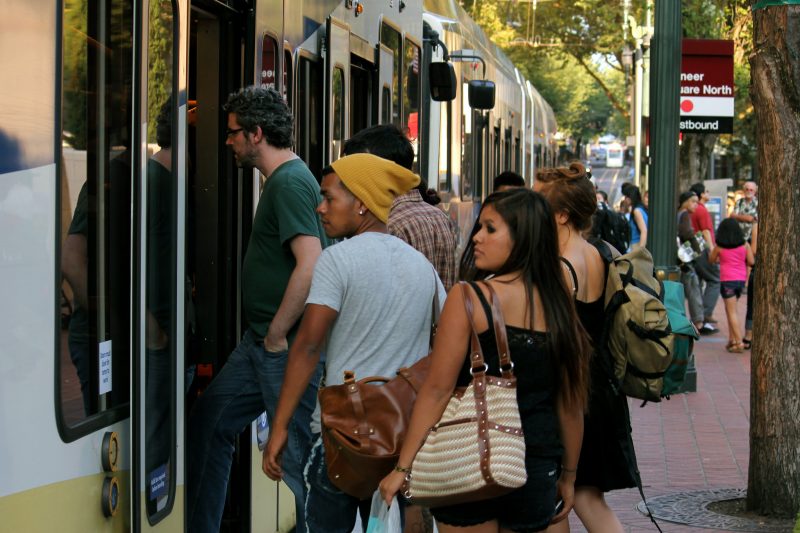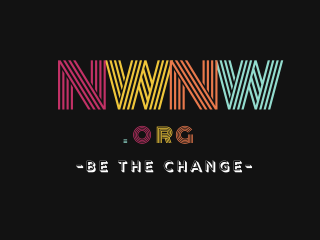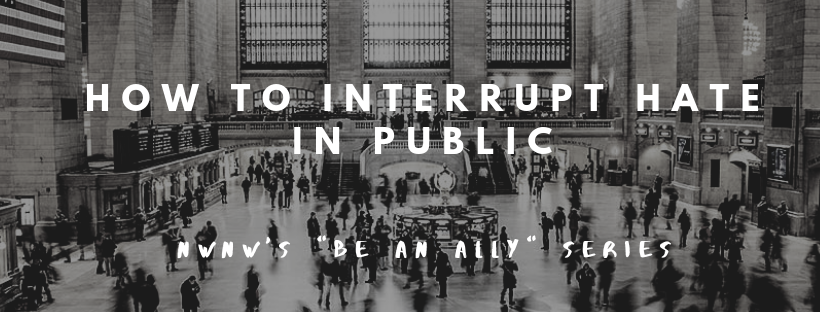Reports of hate incidents and crimes have grown increasingly common in the U.S., especially in Oregon. You may have seen examples in your own life: A man berating a woman for ignoring him; Someone wearing religious clothing bullied for their faith; A person of color told to “go back to your own country.” These scenarios play out before us on public transit, the street and in other communal spaces.
“What can I do?”is the sinking question we have all faced. What can one person do to confront hate, even when it’s directed toward a stranger?
In search of answers, Neighbors West-Northwest staff participated in Rabbi Debra Kolodny’s training, “Interrupting Hate in Public Spaces.” Kolodny is one of the founders of Portland United Against Hate and has drawn from tested research to train nearly 1,000 people in becoming active bystanders.
Kolodny offered empowering, culturally aware advice for anyone to handle harassment in the public sphere. We hope you will attend a future training, but here are some key suggestions to add to your toolbox today.
When you see an instance of hate…
- Focus on supporting the person receiving the hate.
Our first instinct may be to direct attention to the perpetrator through shame or intimidation. Kolodny advises against this. Ignoring the perpetrator can diminish their power over a situation.
“Buddy up” with the target of hate. Find ways to join them while respecting personal boundaries. If you are on transit, sit next to them. Ask yes or no questions such as, “Do you feel safe?” and “Would you like to get off at the next stop together?” Engage them in conversation—this diverts attention away from the perpetrator and assures the victim they have an ally.
Note: If this person tells you they do feel safe, leave them alone. You might continue to sit next to them, or keep an eye on the situation, but do not press them on the issue.
- Encourage the targeted person to LEAVE the situation.
The safest solution is to leave the area with the targeted person. If it’s happening on the street, cross the street or enter a store. If you’re on public transit, get off at the next stop. Suggest a plan and ask permission to join them.
We all have places to be, and the victim may worry they’ll be late if they alter their route. Offer to go with them and vouch for them. Being an ally means acting even when it is not convenient for you.

Photo c/o of PBOT
For your safety:
- Use your best judgment in evaluating your own safety. Enlist others around you to intervene if you do not feel safe doing so.
Some of us are better positioned to intervene based on our race, gender or other factors of our identities. Think about the role you can play.
- Do not get between the perpetrator and the person being targeted. This jeopardizes your own safety and can potentially escalate the situation.
For the victim’s safety:
- Ask them permission before calling the police.
For many people who experience harassment, especially people of color, immigrants and our houseless neighbors, calling the police can heighten the tension in a situation or have unintended consequences. Ask the person if they want the police involved.
Note: This advice is specific to the most common incidents of harassment, in which no weapons are involved.
- If you are a witness to domestic abuse and beratement, shaming the perpetrator can lead to greater abuse of the victim at home. Distraction, be it through conversation or public spectacle (e.g. spilling a bag of groceries), can be an excellent tool in these situations.
Report hate incidents
Both witnesses and targets of hate can (and should!) report incidents to the Portland United Against Hate (PUAH) online database at ReportHatePDX.com. PUAH tracks hate incidents and offers access to resources such as counseling, victim advocacy and training opportunities.

